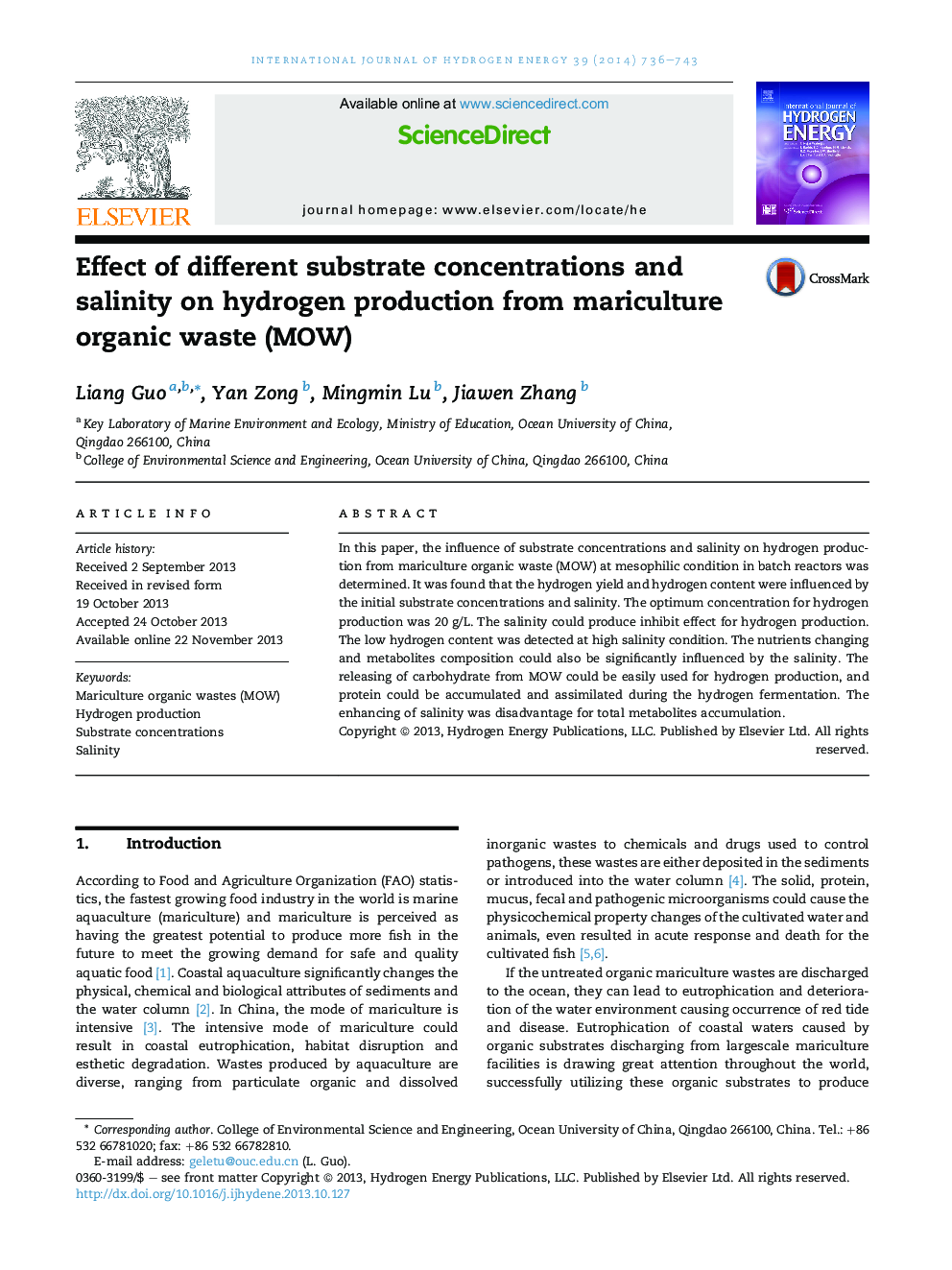| Article ID | Journal | Published Year | Pages | File Type |
|---|---|---|---|---|
| 1276517 | International Journal of Hydrogen Energy | 2014 | 8 Pages |
•Mariculture organic waste (MOW) could be used for hydrogen production.•The hydrogen yield and content could be affected by substrate concentrations and salinity.•The optimum substrate concentration for MOW hydrogen production was 20 g/L.•The hydrogen fermentation could be inhibited in salinity condition.•The nutrients changing and metabolites composition could be influenced by salinity condition.
In this paper, the influence of substrate concentrations and salinity on hydrogen production from mariculture organic waste (MOW) at mesophilic condition in batch reactors was determined. It was found that the hydrogen yield and hydrogen content were influenced by the initial substrate concentrations and salinity. The optimum concentration for hydrogen production was 20 g/L. The salinity could produce inhibit effect for hydrogen production. The low hydrogen content was detected at high salinity condition. The nutrients changing and metabolites composition could also be significantly influenced by the salinity. The releasing of carbohydrate from MOW could be easily used for hydrogen production, and protein could be accumulated and assimilated during the hydrogen fermentation. The enhancing of salinity was disadvantage for total metabolites accumulation.
